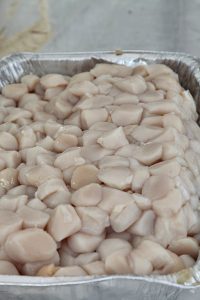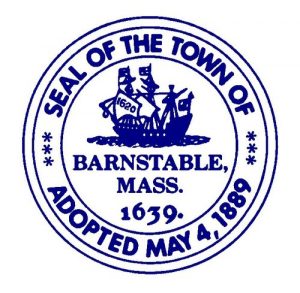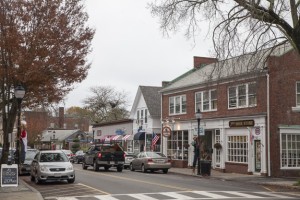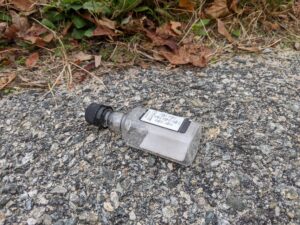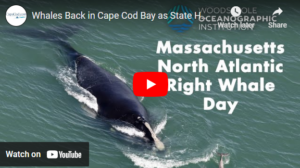BOSTON – NOAA Fisheries Northeast Fisheries Science Center and the New England Fishery Management Council (NEFMC) have selected 13 projects for awards through the Sea Scallop Research Set-Aside (RSA) Program.
The awards are expected to generate more than $14 million; $2.8 million to fund research, and $11.4 million to compensate industry partners who harvest set-aside quota.
The NEFMC established the sea scallop RSA program to address research questions that support management of the sea scallop resource.
The council sets the research priorities and researchers compete for funding through a federal grant competition managed by NOAA Fisheries. No federal funds support the research. Instead, pounds of scallops are awarded from amounts “set-aside” from the annual fishery quota for this purpose.
Among the research projects that will be supported this year are automated image annotation for optical scallop surveys, testing different scallop dredges for efficiency and performance, and development of a high-resolution model to assess the potential impact of offshore wind resource facilities on the regional fishery industry.
Of special interest are effects on transport of sea scallop larvae and early juveniles between sea scallop populations in the Gulf of Maine/Georges Bank area and the New England/Middle Atlantic Bight.
The sea scallop RSA awards play an integral role in one of our nation’s most successful and valuable fisheries. Successful applicants partner with the fishing industry to conduct research and to harvest their set-aside award, generating funds for the research. There are active research set-aside programs for Atlantic sea scallops, Atlantic herring, and monkfish.
The Virginia Institute of Marine Science (VIMS) received two new two-year awards. In collaboration with the University of Massachusetts, Dartmouth, School for Marine Science and Technology (SMAST), investigators will use high-definition cameras to observe and monitor a sea-scallop survey dredge to evaluate its catch efficiency and performance under different habitat conditions.
The VIMS researchers will also conduct a synoptic dredge survey of the Mid-Atlantic Bight sea-scallop resource area. As part of scallop RSA awards made last year, the VIMS research team will conduct dredge surveys of the Nantucket Lightship, Closed Area I, and Closed Area II scallop management areas on Georges Bank.
The University of Massachusetts, Dartmouth, School for Marine Science and Technology (SMAST) received two awards to conduct optical surveys using a drop-camera array.
Researchers plan to conduct high-resolution surveys in the Mid-Atlantic access area and open areas off Long Island, and in the Nantucket Lightship and Closed Area I scallop management areas and Great South Channel.
As part of these awards, SMAST, in collaboration with CVision Consulting, will develop an open source computer algorithm that will be used to automate scallop counts and measurements. SMAST and CVision will coordinate the development of their automated scallop image annotation research with the Coonamessett Farm Foundation and Kitware, Inc., and with the Northeast Fisheries Science Center, where similar research efforts are underway.
Coonamessett Farm Foundation (CFF) received awards to conduct HabCam optical surveys in the Nantucket Lightship, Closed Area II, and Elephant Trunk scallop management areas to produce scallop size distribution and biomass estimates. CFF, in collaboration with Kitware, Inc., received another award to incorporate stereo imagery into Video and Image Analytics for a Marine Environment, or VIAME, which enables improved automated image annotation of HabCam images.
The Maine Department of Marine Resources, in collaboration with the University of Maine, Orono, will conduct a dredge survey in select parts of the Gulf of Maine federal waters to provide scallop biomass estimates. Areas of particular focus will include Stellwagen Bank, Jeffreys Ledge, and Ipswich Bay.
Bycatch Mitigation
A National Fisheries Institute (NFI) team, in collaboration with Rutgers University, will test a scallop dredge modification that allows the cutting bar angle to be adjusted to allow more small scallops and other bycatch to escape while retaining market-sized scallops. This gear modification will be tested in the Mid-Atlantic Bight and on Georges Bank.
Coonamessett Farm Foundation, in collaboration with the Northeast Fisheries Science Center, will continue its loggerhead sea turtle tagging and sampling program, tagging up to 10 loggerheads with water-activated satellite tags and collecting biological samples. They will work in the southern Mid-Atlantic Bight area, where turtles congregate before they migrate north.
Tag data helps to evaluate spatial and temporal overlap between loggerhead sea turtles and the scallop fishery. Under a separate award, CFF researchers, in collaboration with Roger Williams University and the Atlantic Offshore Lobsterman’s Association, will examine seasonal changes in bycatch rates and overall health and meat quality of scallops in the scallop fishery in the Closed Area II Access Area and immediate surrounding area.
The Commercial Fisheries Research Foundation (CFRF), in collaboration with Gulf of Maine Inc., will test the N-Viro dredge aboard limited access and general category scallop vessels to learn whether the gear will reduce bycatch and improve fuel efficiency. The N-Viro dredge was designed and successfully used in Scotland’s scallop fisheries.
Modeling
SMAST researchers, in collaboration with the Woods Hole Oceanographic Institution, received a new two-year award to develop a high-resolution model to assess the potential impact of offshore wind resource facilities on the regional fishing industry. Of special interest are effects on transport of sea scallop larvae and early juveniles between sea scallop populations in the Gulf of Maine/Georges Bank area and the New England/Mid Atlantic Bight.
For more information about these awards and the Sea Scallop RSA Program, please contact Ryan Silva (978-281-9326), or Cheryl Corbett (508-495-2307).
By TIM DUNN, CapeCod.com News Center




